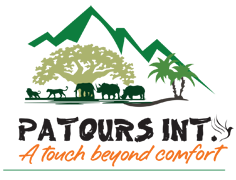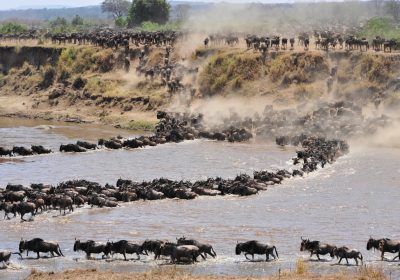Back
EN / USD
Language
Currencies

Uganda
Uganda is one of Africa’s top travel destinations, offering unforgettable safaris, gorilla trekking, and cultural adventures. Known as the Pearl of Africa, Uganda combines breathtaking landscapes with incredible wildlife experiences. Explore Bwindi Impenetrable National Park for a once-in-a-lifetime gorilla trekking safari, track chimpanzees in Kibale Forest, or enjoy game drives in Queen Elizabeth National Park, where elephants, lions, and hippos roam freely. For adventure seekers, the Nile River offers white-water rafting, while the Rwenzori Mountains invite scenic hikes. With welcoming people and year-round travel opportunities, Uganda is the perfect destination for your next African safari holiday.
2 tours in Uganda
Showing 1 – 2 of 2 tours found
FAQ’s about Uganda
Have more questions? Contact us.
Do I need a visa and what are the passport requirements?
Yes, most travelers require a valid passport with at least six months’ validity. You can apply for an e-Visa online, or obtain a visa on arrival. The East Africa Tourist Visa, valid for Uganda, Rwanda, and Kenya, is also an option if you plan to visit multiple countries.
What vaccinations and health precautions should I take?
A Yellow Fever vaccination certificate is mandatory. Travelers are also advised to receive routine vaccinations (e.g., hepatitis A/B, typhoid, tetanus) and take malaria prophylaxis. Insect repellent and bottled water are recommended.
When is the best time to visit Uganda?
The dry seasons (June–August and December–February) are ideal for gorilla trekking and wildlife viewing, offering better trail conditions and animal visibility. The wet seasons (March–May & September–November) are less crowded and great for birdwatching, though travel may be more challenging.
Is Uganda safe for tourists?
Yes—Uganda is regarded as one of Africa’s safest tourism destinations. That said, it's wise to avoid isolated areas after dark, safeguard valuables, and follow guidance from reputable tour operators.
What currency is used, and can I use credit cards or ATMs?
The official currency is the Ugandan Shilling (UGX). Credit cards are accepted in urban hotels and lodges, but cash is essential in rural areas. ATMs are available in cities but scarce in remote locations.
What should I pack for my Uganda trip?
Bring lightweight, breathable clothing, sunglasses, a hat, sunscreen, comfortable hiking shoes, a rain jacket, insect repellent, a first-aid kit, and a reusable water bottle. For gorilla trekking, long pants and sturdy footwear are recommended.
What kind of wildlife and activities does Uganda offer?
Uganda is famous for mountain gorilla trekking, chimpanzee tracking, safaris (Big Five viewing), white-water rafting on the Nile, cultural tours, and scenic landscapes—including Lake Victoria and the Rwenzori Mountains.
What languages are spoken in Uganda?
English and Swahili are the official languages. Many locals also speak regional languages such as Luganda and Runyankole, depending on the area.
Do I need travel insurance?
While not mandatory, travel insurance is strongly recommended. Ensure it covers medical emergencies, evacuation, trip cancellations, and activity-specific needs like trekking or safari.
Latest stories
Planning a family safari in Africa? Great choice! Safaris aren’t just for...
Namibia is famous for its Etosha safari, but this country offers so...
Both Tanzania’s Serengeti and Kenya’s Masai Mara are legendary safari destinations, attracting...





